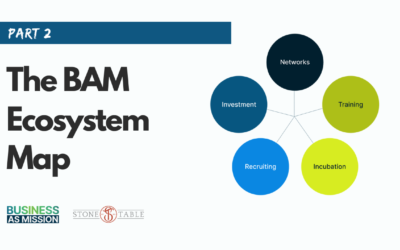Called To The Common Good

I was stressing. I had never done something like this before. The barren page stared back at me as I thought of what to write. The clock was counting down, and I only had roughly 12 hours before my assignment was due. What was I going to do?
I had never done this before and I had no idea what to do! Surely, you can relate. These were thoughts of mine as I tried to write my first resume. Luckily, I had a friend who used to work for Apple corporate out in California. And he knew exactly how to write a spectacular resume.
So, I asked him for help to write my resume and he obliged. That was the first time I wrote a resume and the first time that I encountered business skills used for a purpose other than making money.
Reflecting
Upon further reflection, I learned that this was the first time that I realized business can be used for good. Business wasn’t all about making money. It can be used for serving and helping people. That event was the catalyst for my perspective shift on business as ministry.
Because I had always thought that ministry needed to be done in the context of a church, I didn’t give any thought to other areas of potential ministry, especially business.
Again, perhaps you can relate. It was shortly after this that I began to study and develop a wholistic theology of work. My studying and practical experience has led me to conclude that business is a viable form of ministry for the Christian.
Scripture
Allow me to elaborate with Scripture. “Build houses and settle down; plant gardens and eat what they produce. Marry and have sons and daughters; find wives for your sons and give your daughters in marriage, so that they too may have sons and daughters. Increase in number there; do not decrease.
Also, seek the peace and prosperity of the city to which I have carried you into exile. Pray to the Lord for it, because if it prospers, you too will prosper” (Jeremiah 29:5-7, NIV). To set this verse in context, YHWH is speaking through the prophet Jeremiah to exiled Israel. The Lord was asking his people to make themselves at home in the land to which they’ve been exiled.
Making a home in a place that’s not your home is a tough thing to do, especially if you have Israel’s elitism. But it might be even more difficult to seek the peace and prosperity of those that have taken you into exile.
Seek The Good
While our situation is not the same as the Israelites in the book of Jeremiah, I believe the underlying principle can still apply to us today. That principle being seek the good of those outside your clan and aim to serve and prosper them. As Christians, it’s easy for us to seek the peace and prosperity of other Christians, especially when we’ve been entrenched in Christian culture (and we should prosper other Christians when prompted).
But this is exactly why business as ministry is valuable. Business inherently seeks to prosper those that are oftentimes not from within our clan. It allows Christian men and women to interact with and ultimately use their business skills to facilitate what theologians and sociologists refer to as the common good – the concept that our work and business dealings are meant to benefit humanity and not just ourselves.
When Christian partake in business, they are also partaking in the facilitation of the common good.
Conclusion
This then brings us to the two points I want to leave you with.
1. As Christians, we must understand that one of the ends that we work toward is the common good. This doesn’t mean that we’re trying to overtly win everyone we encounter at work to Christ. It means that we must lovingly serve those that are within and (especially) outside our clan for their benefit.
And 2. Business is ministry when we allow our work to foster the common good. My friend from Apple didn’t know it then, but he was ministering unto me as he helped me write my resume. With a resume, I was able to get a job and contribute to society through my work. Now that is very much a service that the Lord is pleased by.


